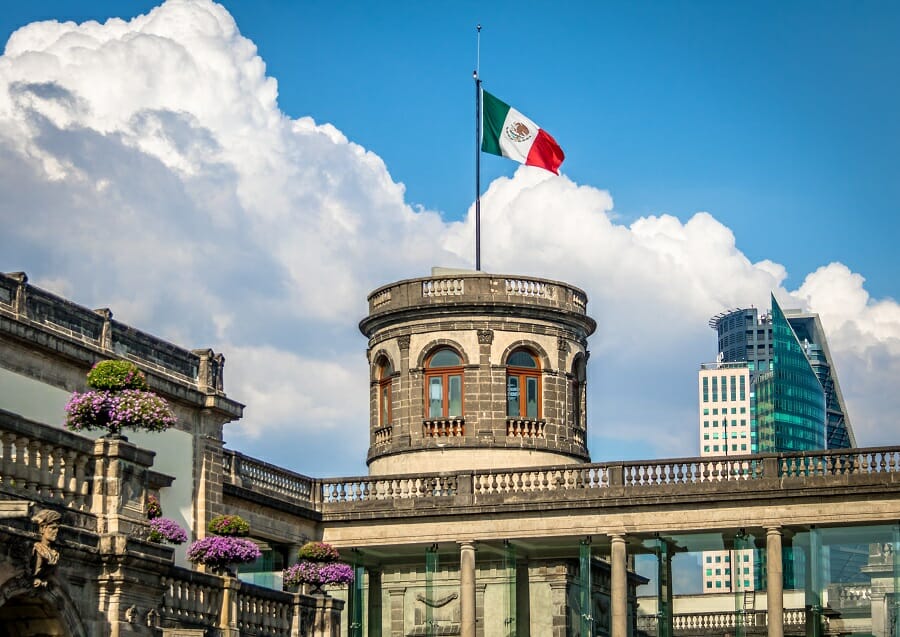Mexico is the second-largest economy in America, thanks to its strategic geographical location. It is situated between the United States and Central America, making it the bridge of operations between the two powerhouses. Forming a company in Mexico is reasonable due to its recent commercial success, which is deemed to be long-term.
The Mexican government strongly endorses globalization, so foreigners who are forming a company in Mexico find the process straightforward.
Benefits of setting up a company in Mexico
When starting up a company in Mexico, you can attain the following advantages, regardless of how small or big the company is:
- Full foreign ownership
- No capital controls for repatriation of profits
- Tax benefits and deductions
- Foreigners can establish a Limited Liability Company (LLC)
- Strong property rights and protection
- No need for a bank trust
- Obtaining work visas
- Absolute control over your investment
Factors to consider when setting up a company in Mexico
When setting up a company, you may want to consider these factors:
- Business factors – The business atmosphere of Mexico is reasonably easy to operate in for foreign companies, with initiatives to facilitate incorporation, such as one-stop shops and more lenient minimum capital requirements. Note that Mexico’s historically elevated levels of corruption and high crime have raised security concerns for foreign companies. These factors must be considered in addition to the industry and type of business, the nationality of the headquarters or individuals, and the presence of existing trade agreements or relationships.
- Location – Cities and regions may have different rules, costs, and availability. Seek advice on location from specialists (business/legal advisors, accountants, etc.) based on your needs.
- Language – International language barriers can pose significant challenges. Even experienced companies can run into difficulties with suppliers or partners when language differences create miscommunications that could threaten plans in Mexico.
How to register a company in Mexico
Have you decided to expand your business to Mexico or incorporate a new company? If so, this guide compiles the steps to a successful company formation in Mexico.
Find the right type of business structure
Identifying the applicable type of business organization is the basis for company incorporation in Mexico and is necessary for additional registrations. The most popular legal entities are:
- Stock Corporation (Sociedad Anónima, S.A.) – mostly used by domestic and foreign investors
- Limited Liability Company (Sociedad de Responsabilidad Limitada, S. de R.L.) – also frequently used
Both legal entities grant limited liability to shareholders, where liability is limited to their capital investment.
Registration of the company’s name
Once you have chosen the type of company to incorporate, submit an application to the Ministry of Foreign Relations with five possible company names in order of preference. This ensures no company already exists in the country with the same name.
Define your company’s capital
Before beginning operations, determine the amount and structure of your company’s capital (stock or shares). The minimum capital of each shareholder/partner must be 1 peso.
Articles of incorporation: drafting and approval
The incorporation document will include the by-laws (company name, corporate purpose, registered office), investors’ names, and capital structure, among other details. All required documents need legal certification and an apostille. Once obtained, the documents must be translated by an official Mexican translator.
Obtain your Tax ID (RFC) from the Mexican tax agency
The next step is obtaining your company tax ID, known as the Registro Federal de Contribuyentes (RFC).
To finish this step, you will visit the offices of the Servicio de Administración Tributaria (SAT), the Mexican tax authority. One of our partner lawyers will take care of it.
Tax declarations
The entity will be liable for monthly tax declarations at SAT (Servicio de Administración Tributaria). Please note: a power of attorney is required for tax declarations.
Registration of employees
For hiring employees, it is essential to register the company with social security and the National Workers’ Housing Fund.
Please keep in mind there is a specific permit to hire foreigners called Constancia de empleador. This authorization must be renewed yearly after the annual financial statements or if the company changes its legal representative or fiscal address.
Registration of foreign investment
Registration of foreign investment capital applies when any business owner has a nationality other than Mexican. Registration at the Ministry of Foreign Investment must be completed within 40 days after the incorporation date.
Open a corporate bank account
As the last step, open a company bank account. The legal representative can complete this step; the bank will require the company RFC and corporate information. Choose a local bank that offers the best pricing for international transactions and other important services. It’s recommended to work with a local professional familiar with the process.
Starting your business
Congratulations! You can start operating your business in Mexico.
Contact Damalion if you need assistance in setting up a company in Mexico. We look forward to working with you!
![]()
Setting up a company in Mexico — entity options, required documents, name clearance, notary deed, Public Registry filing, RFC tax ID, foreign investment registration, hiring basics, invoicing (CFDI 4.0), and bank account.
For entrepreneurs, family offices, private equity, venture capital, corporate groups, and SPVs • Damalion helps you scope, prepare the file, and coordinate providers so institutions can review efficiently. Acceptance and timing remain at each provider’s discretion.
Last updated:
What makes Mexico company setup smoother?
Choose the right entity and keep documents complete and consistent. Explain your activity, ownership, capital, and expected operations in clear terms. Present clean identification of shareholders, directors, and ultimate beneficial owners. Plan the deed before a Mexican notary, prompt filings at the Public Registry of Commerce, tax ID (RFC) with SAT, and, if applicable, registration with the National Registry of Foreign Investments.
Main legal entities at a glance
| Entity | Typical use | Ownership / capital | Notes |
|---|---|---|---|
| Sociedad Anónima (S.A. / S.A. de C.V.) | Operating companies, mid/large projects | Shareholders; variable capital option | Board or sole director; common for corporate groups. |
| Sociedad de Responsabilidad Limitada (S. de R.L. de C.V.) | Closely held ventures, JV with pass-through feel | Partners (quotas); variable capital option | Transfer of quotas usually requires partner approval. |
| Sociedad Anónima Promotora de Inversión (S.A.P.I. de C.V.) | Venture-style governance, investors’ rights | Shareholders; flexible shareholder agreements | Designed for investment and corporate governance flexibility. |
| Sociedad por Acciones Simplificada (S.A.S.) | Micro/small ventures | 1+ individual shareholder(s) | Electronic formation possible; revenue cap applies by law. |
| Branch (Sucursal) | Presence of foreign company | No separate legal person | Requires authorization and local registration steps. |
| Representative office | Non-commercial liaison | N/A | No revenue-generating activities; limited scope. |
Documents most firms prepare
- Shareholder IDs; proof of address; corporate documents for any corporate shareholder.
- Ownership chart up to individuals who are the ultimate beneficial owners (UBOs).
- Draft bylaws (name, purpose, capital, shares/quotas, governance).
- Name options for clearance (usually up to five).
- Power of attorney, if representatives will sign.
- Sworn and apostilled documents, with certified Spanish translations when required.
Company setup — simple roadmap
- Pick the entity and name. Decide S.A., S. de R.L., S.A.P.I., S.A.S., or other. Request name authorization.
- Prepare the deed. Agree bylaws, capital, governance, and sign before a Mexican notary (Notario Público).
- Public Registry filing. File incorporation with the Public Registry of Commerce in the company’s domicile.
- Get the RFC tax ID. Register the company with SAT and obtain the RFC. Arrange e.firma and invoicing (CFDI 4.0).
- Foreign investment registration (if applicable). Register with the National Registry of Foreign Investments within the statutory period.
- Social security and employer registry. Register as employer to hire staff; observe outsourcing and profit-sharing rules.
- Open the bank account. Provide corporate file, RFC, signatories, and activity description; run test payments.
Costs and timelines
- Notary, translations, apostilles, registry fees, and government charges vary by state and file complexity.
- Professional fees depend on scope (drafting, filings, tax and labor registrations, bank account support).
- Typical timing after a complete file: several business days to a few weeks, depending on locality and follow-ups.
Related reading
Frequently asked questions
Can foreign investors own 100% of a Mexican company?
Is a notary required for incorporation?
Do we need to register with the Public Registry of Commerce?
When must we register foreign investment?
What is the RFC and when is it obtained?
Is CFDI 4.0 e-invoicing mandatory?
Are there beneficial owner (UBO) obligations?
How many shareholders are required?
Is there a minimum capital?
Can bylaws be in English?
How long does incorporation take?
What about labor and outsourcing rules?
Do we need an employer registration to hire foreigners?
Is a Mexican address required?
Are there sector licenses?
Are there data protection rules?
Can we open the bank account before the RFC is issued?
What taxes apply to operating companies?
Do we need accounting and statutory books?
Can a bank or notary reject the file?
10 Best Things to Do in Mexico City, Mexico in 24 Hours
Maximize a tight schedule with easy-to-reach highlights around Paseo de la Reforma, Chapultepec, and the Historic Center.
- National Museum of Anthropology – world-class pre-Hispanic collections. Jump to map
- Chapultepec Castle & Park – hilltop views and history.
- Palacio de Bellas Artes – architecture and murals.
- Templo Mayor Museum – Aztec ruins beside the Zócalo.
- Zócalo & Historic Center – main square and civic buildings.
- Frida Kahlo Museum (Casa Azul) – artist’s home in Coyoacán.
- Museo Soumaya – private collection in a striking building.
- Torre Latinoamericana – observation deck over the city.
- Xochimilco Canals – trajinera boat ride (time-permitting).
- Basilica of Our Lady of Guadalupe – major pilgrimage site.
10 Best Hotels in Mexico City (central and business-friendly)
- Four Seasons Hotel Mexico City – Reforma/Chapultepec.
- The St. Regis Mexico City – Reforma, skyline views.
- Sofitel Mexico City Reforma – modern rooms on Reforma.
- The Ritz-Carlton, Mexico City – tower above Reforma.
- Hyatt Regency Mexico City – Polanco, near parks and museums.
- JW Marriott Hotel Mexico City – Polanco business hub.
- W Mexico City – lifestyle stay in Polanco.
- Hilton Mexico City Reforma – by Alameda Central.
- Gran Hotel Ciudad de México – historic hotel at the Zócalo.
- Camino Real Polanco – iconic architecture, gardens.





























